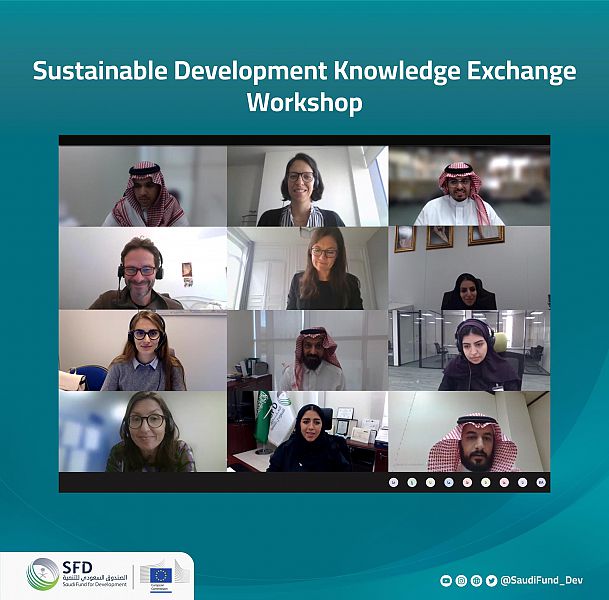
“Unprecedented advances in digital technology, including generative Artificial Intelligence, offer us previously unimaginable opportunities to move forward on the enjoyment of human rights and contribute to rescuing the 2030 Agenda,” said UN Human Rights Chief Volker Türk in his vision statement, “Human Rights: A Path for Solutions.”
AI was the main spotlight at the fifth annual AI for Good Global Summit held in Geneva, Switzerland. The Summit is the leading action-oriented UN platform to promote AI to advance health, climate, gender, inclusive prosperity, sustainable infrastructure, and other global development priorities.
“As AI use continues to evolve and impact our daily lives, it’s crucial that we ensure its development benefits everyone,” Türk said on the Summit and how it was a great opportunity to work on policies and governance that prevent AI-induced rights abuses.
The Summit was organized by the International Telecommunication Union, the UN specialized agency for information and communication technology, in partnership with 40 UN agencies, including UN Human Rights, and the Swiss government. The Summit aimed to identify practical applications for AI, scale solutions for global impact and accelerate progress towards the UN Sustainable Development Goals.
“Our presence at the AI for Good summit is a testament to the importance of embedding human rights considerations into the fabric of technological innovation,” said Peggy Hicks, Director of the Thematic Engagement, Special Procedures and Right to Development Division at UN Human Rights. “We believe that through multistakeholder efforts, we can achieve a balance where the transformative potential of AI is realized in ways that enhance, rather than undermine, human rights.”
The annual event brought together UN officials, notable tech experts, technology companies and young tech enthusiasts to participate in panels and workshops on a wide range of topics such as AI accessibility for all, the empowerment of people with disabilities through technology, environmental destruction and sustainable development, climate change, the transformation of public services, generative AI and multimedia authenticity, and the early warning systems forecasting the future.
“Artificial Intelligence is changing our world and our lives, and it can turbo charge sustainable development. From bringing education and health care to remote areas, to helping farmers boost their crops. From designing sustainable housing and transportation, to providing early warning for natural disasters,” said UN Secretary General Antonio Guterres in his video message to the Summit. “AI could be a game-changer for the SDGs.”
“But transforming its potential into reality requires AI that reduces bias, misinformation, and security threats instead of aggravating them,” Guterres said. “It also requires helping developing countries harness AI for themselves. Connecting the unconnected. Building capacity on computing power, data, and governance. We need global coordination to build safe and inclusive AI that is accessible to all.”
This is why the Office, who takes the lead on business and human rights within the UN system, launched the Business and Human Rights in Technology Project (B-Tech Project) in 2019, as a way to address these issues by providing an authoritative roadmap for applying the UN Guiding Principles on Business and Human Rights (UNGPs) to the development and use of digital technologies.
Through the B-Tech Project, the Office works directly with companies such as Microsoft, Hewlett Packard Enterprise, Google, and Meta amongst others to address human rights challenges including in generative AI. The project not only engages with private partners, but with governments, academia, and civil society by providing a safe space to engage and learn from each other.
“Digital technology should be a force for realizing human rights and the SDGs. But this won’t happen by itself. Applying human rights due diligence to the full lifecycle of technological design development can help prevent harms and ensure that tech contributes to serving humanity – and not the other way around,” Hicks said.
UN Human Rights provides concrete guidance on adopting a human rights-based approach to the development and deployment of technologies, including AI, ensuring that these technologies uphold the dignity and rights of all individuals, Hicks added.
“
The human rights framework — as developed and applied over decades — constitutes an essential foundation for addressing the many questions raised in the digital sphere, including with regard to our privacy, our dignity and our voice.
“
UN HUMAN RIGHTS CHIEF VOLKER TÜRK
The Summit featured panel discussions that covered a variety of thematic issues including AI and gender, peace and security, and health. For the UN Environment Programme (UNEP), their work took center stage on AI and the environment to help tackle the triple planetary crisis, which includes achieving climate stability, harmony with nature, and a pollution-free planet.
“Across all these domains, we work with two things in mind, we call them the two sides of the coin, how do we deploy technology to achieve these goals, and on the other side, how do we make technology itself environmentally sustainable and responsible,” said Golestan Sally Radwan, Chief Digital Office at UNEP, during her presentation.
One of these efforts is EnvironmentGPT, a groundbreaking application of Large Language Model technology for environmental purposes.
“We built this [application] together with the AI for Good Lab at Microsoft,” Radwan said. “It’s a research collaboration and it’s currently in a private beta version. It is currently limited to answering questions on the topics of Climate Change and Air Pollution but will be expanded to other environmental domains. The main differences between EnvironmentGPT and ChatGPT are that it was trained on a UNEP-approved corpus of scientific data to minimise hallucinations, and that it always provides the reference from which it got its information, to allow traceability and transparency.”
UNEP is also looking into the impacts that the developing of these technologies have on the environment by quantifying the entire footprint of the production cycles, so that States and companies can agree on limits, standards, and best practices to minimize the impacts, she added.
“It is crucial that States pay greater attention to the right to benefit from science,” Türk said in his vision statement on science and human rights. “This includes protecting the space for scientific enquiry and for evidence-based debate and decision-making, including on environmental crises — governments and industry must take decisive steps to end disinformation, attacks on experts and conflicts of interest.”
There is already an understanding of how human rights apply to digital technologies, but according to Türk, there is a disconnect with the capacity to translate this into practice.
“
Placing human rights at the centre of how we develop, use and regulate technology is absolutely critical to our response to these risks.
“
UN HUMAN RIGHTS CHIEF VOLKER TÜRK
A way to make a connection, Türk hopes to establish, through the Global Digital Compact, a Digital Human Rights Advisory Mechanism, which will be supported by his Office. He said that this service could provide a resource for States, companies, and others as they develop legislation, policy and practices.
“Given the speed of tech development and its widespread deployment across various sectors, it is crucial to ensure the meaningful and sustained participation of all stakeholders in how tech is developed and governed,” Hicks said. “This includes States, civil society, companies, academia, and the UN system. By working together, we can harness the benefits of technologies like AI while effectively mitigating and preventing associated human rights risks and harms.”












